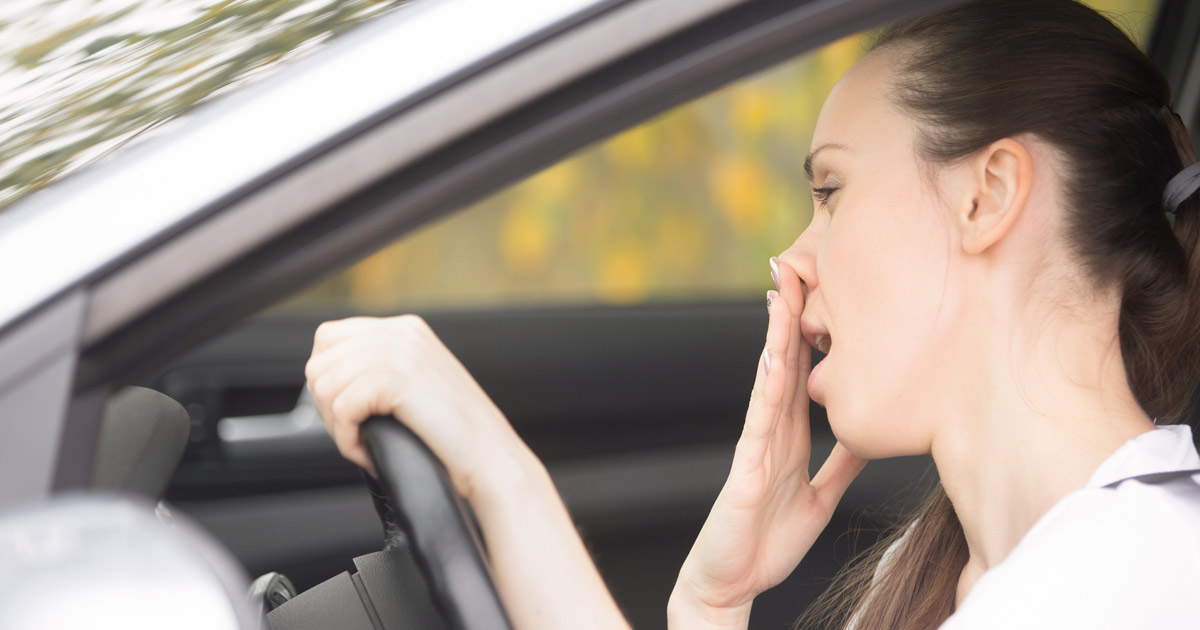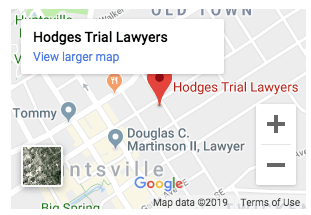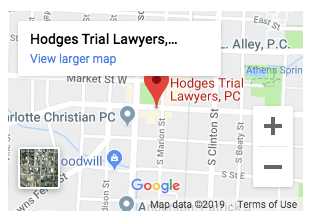When driving fatigue is combined with a lack of driving experience, it increases the chances of getting into a car wreck. Teenagers are notorious for not getting enough sleep; they are prone to staying up late, and teenagers may not be responsible or experienced enough to realize how this can affect their driving abilities.
Drowsy driving among teenagers is emphasized by a myriad of crash statistics. The American Automobile Association (AAA) Foundation for Traffic Safety estimates that 328,000 motor vehicle accidents are caused by drowsy driving each year. Not all of these fatigued drivers are teenagers, but the National Safety Council (NSC) claims that at least half of these crashes involve young drivers under 25 years old. Drivers between 16 and 24 years old are 80 percent more likely to be involved in drowsy driving accidents compared to adults who are 40 years old and older.
Comparing Drowsy Driving to Drunk Driving
Drowsy driving is just as dangerous as driving under the influence (DUI) since both can lead to a delayed reaction time, impaired judgment, poor decision making, and a decrease in the ability to process information. Tired drivers may not even know that they are impaired, which is a big part of the problem.
The AAA reports that moderate sleep deprivation of about 17 to 19 hours results in impairment that is equal to or worse than having a blood alcohol content (BAC) level of 0.05. Drowsy driving crashes can be just as devastating as drunk driving accidents, and they can even be fatal.
How can I Tell if I am Overly Tired?
One yawn may not signify extreme fatigue, but constantly yawning and being unable to keep one’s eyes open are signs of exhaustion. Other signs of tiredness include wandering thoughts, nodding off, irritability, and restlessness.
An exhausted driver may also do the following:
- Miss road signs, traffic lights, and turns
- Drive too slowly
- Drift into other lanes
- Get lost
- Tailgate
Why are Teenagers Always Tired?
Teenagers start school early and have school activities, jobs, and busy social lives. The excessive use of technology also contributes to drowsiness. It is not uncommon for a teenager to stay up late and play video games, text, and browse online. Teenagers need a lot of sleep, so all of these factors are unhealthy.
The AAA also claims that using laptops, tablets, and cellphones increases the amount of time it takes to fall asleep. The light that these electronic devices emit affects human circadian rhythms and can delay sleep times and cause psychological insomnia. Circadian rhythms are biological clocks that influence when people are more likely to be awake or asleep. Teenagers who are sleep deprived over several days may fall into longer periods of sleep, but this can also be a problem. It does not erase sleep deprivation, so the impairments may still be there and can even create a false sense of alertness.
Some school districts have debated about whether or not there is enough scientific evidence to delay school start times. Although there is a chance it could help, the logistics make it too difficult. Many areas share school buses, so some schools have to start earlier. Changing the start times would also impact childcare, after-school jobs, and school activities.
Preventing Drowsy Driving
There is no way to prevent early school start times, but parents and caregivers can find ways to help their teenagers get more sleep. A parent should make sure that their teenager’s room is comfortable. It is also recommended to avoid having a television in the room. Teenagers are not always easy to control, so forbidding a teenager from using their phone at night might not work. Regular exercise and cutting out naps can also be helpful.
Being closely involved in education and training can also help. Driver education programs are provided by schools, but parents should spend time with their teenagers and allow them to have hands-on experience. Since drowsy driving may not be a part of driver education, parents and caregivers must make the time to explain the dangers of fatigued driving. They can also use tracking devices so that they will know where their teenagers are located.
Additionally, a parent can offer to drive their teenager home from late work shifts, school events, and other places. Families should equate drowsy driving with impaired driving. A parent offering a car ride to their teenager is advantageous.
What if My Teenager is in a Car Accident?
Automobile accidents are the leading cause of death for teenagers. Not only are they less experienced drivers, they may not realize the dangers of drowsy driving. If a teenager is involved in an accident, they should seek medical attention immediately. If it is possible, they should also collect evidence at the car accident scene. Another important step is to contact a lawyer. A lawyer will help with a personal injury claim.
If a person is hit by a negligent teenage driver, it is also important for them to contact a lawyer about their legal options.
Huntsville Car Accident Lawyers at Hodges Trial Lawyers, P.C. Help Victims Injured in Teen-Related Car Wrecks
If you were in a car accident or you were hit by a teenage driver, you may be able to collect compensation. Our Huntsville car accident lawyers at Hodges Trial Lawyers, P.C. protect car crash victims against negligent drivers. Contact us online or call us at 256-539-3110 for a free consultation. Located in Huntsville and Athens, Alabama, we serve clients throughout North Alabama, Madison County, Limestone County, Marshall County, Jackson County, Morgan County, and Lauderdale County.



